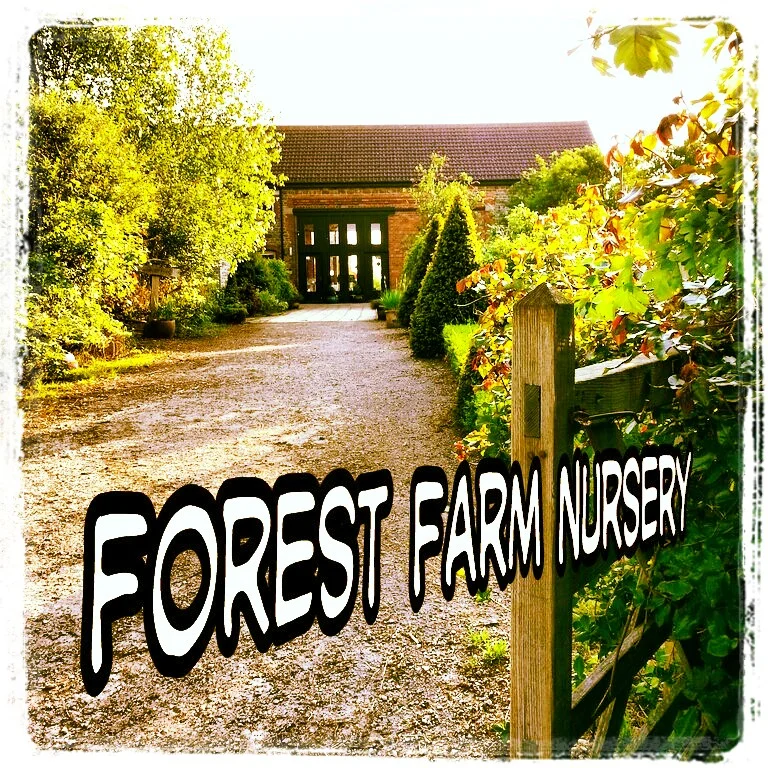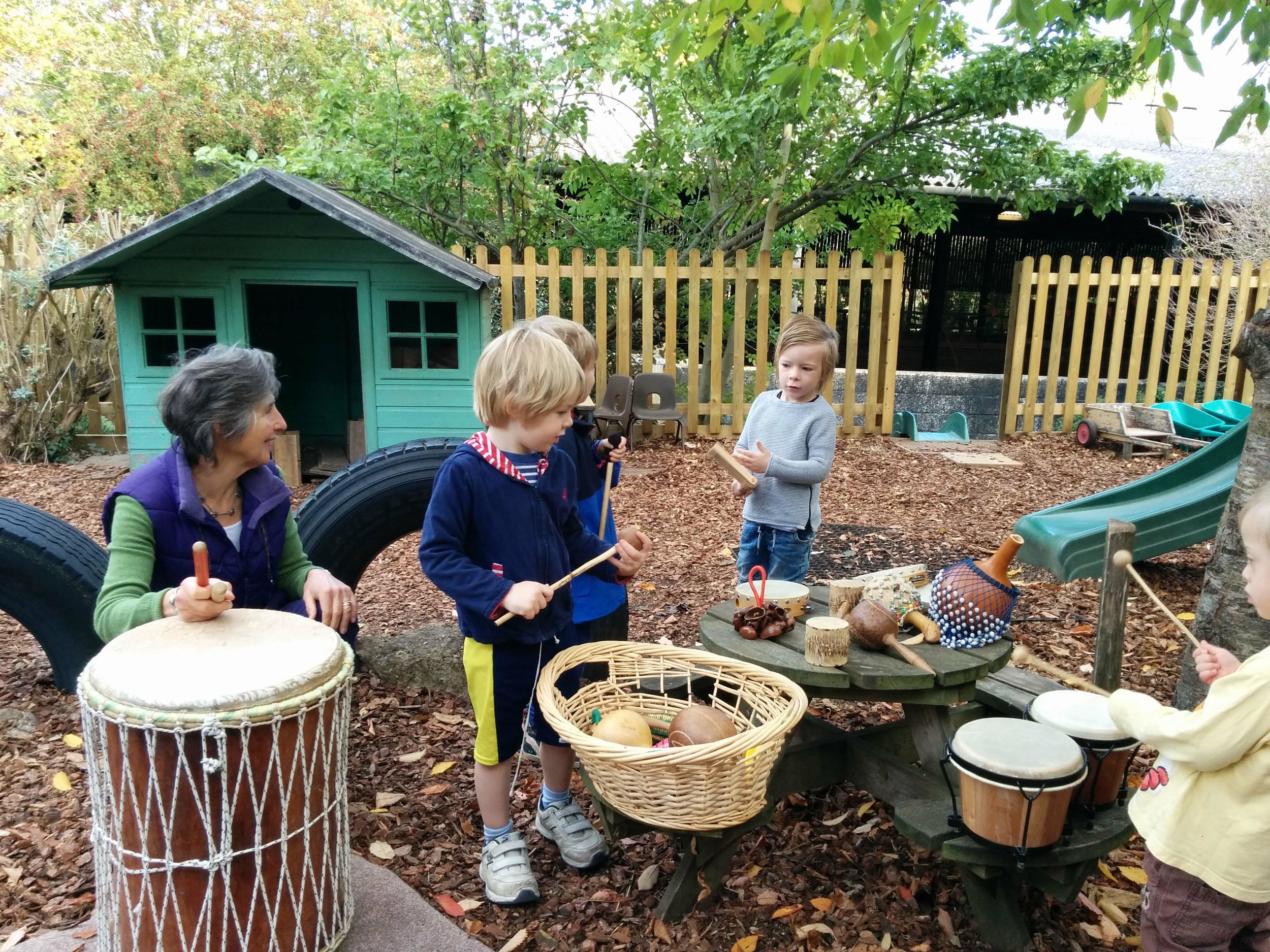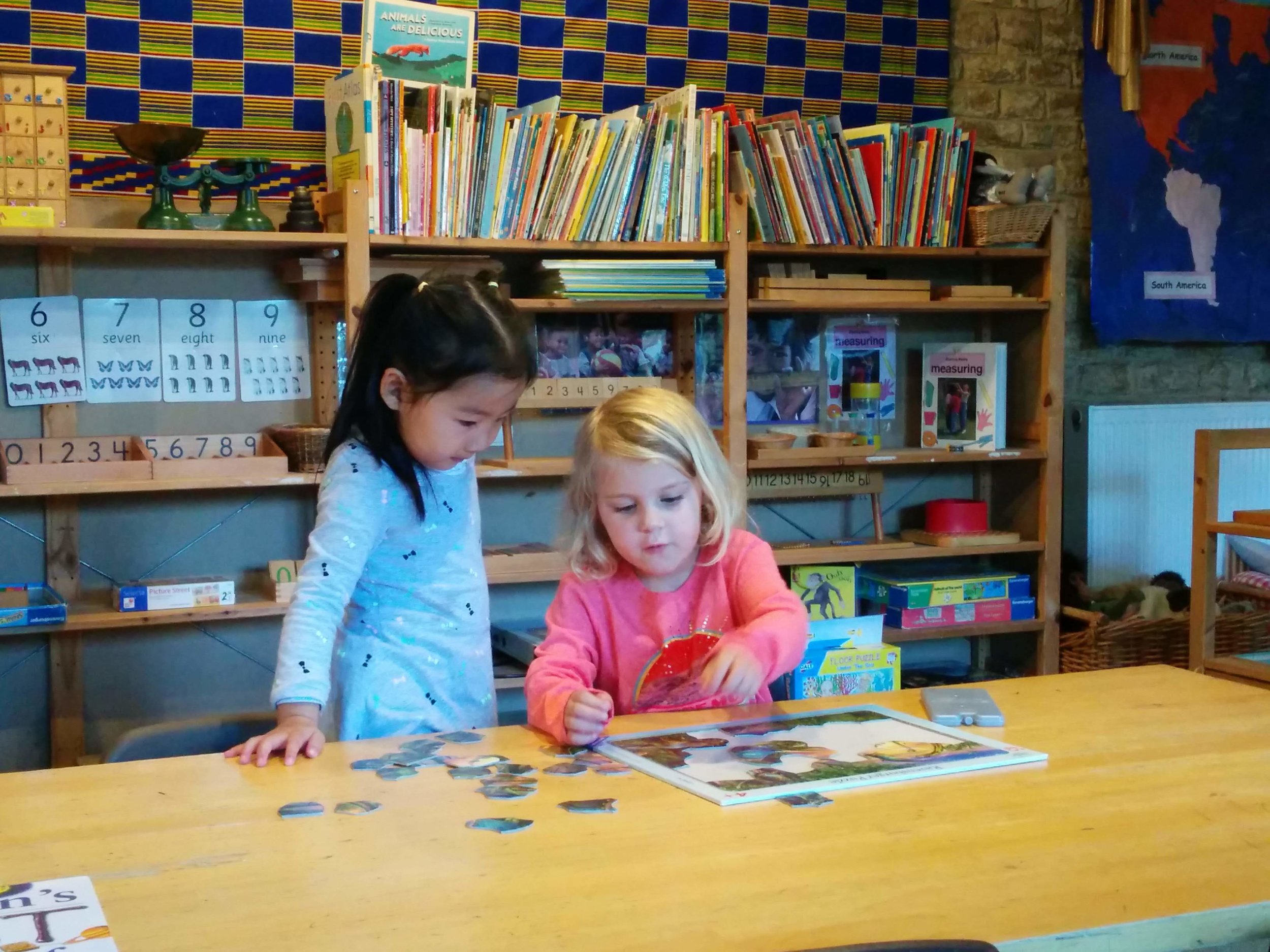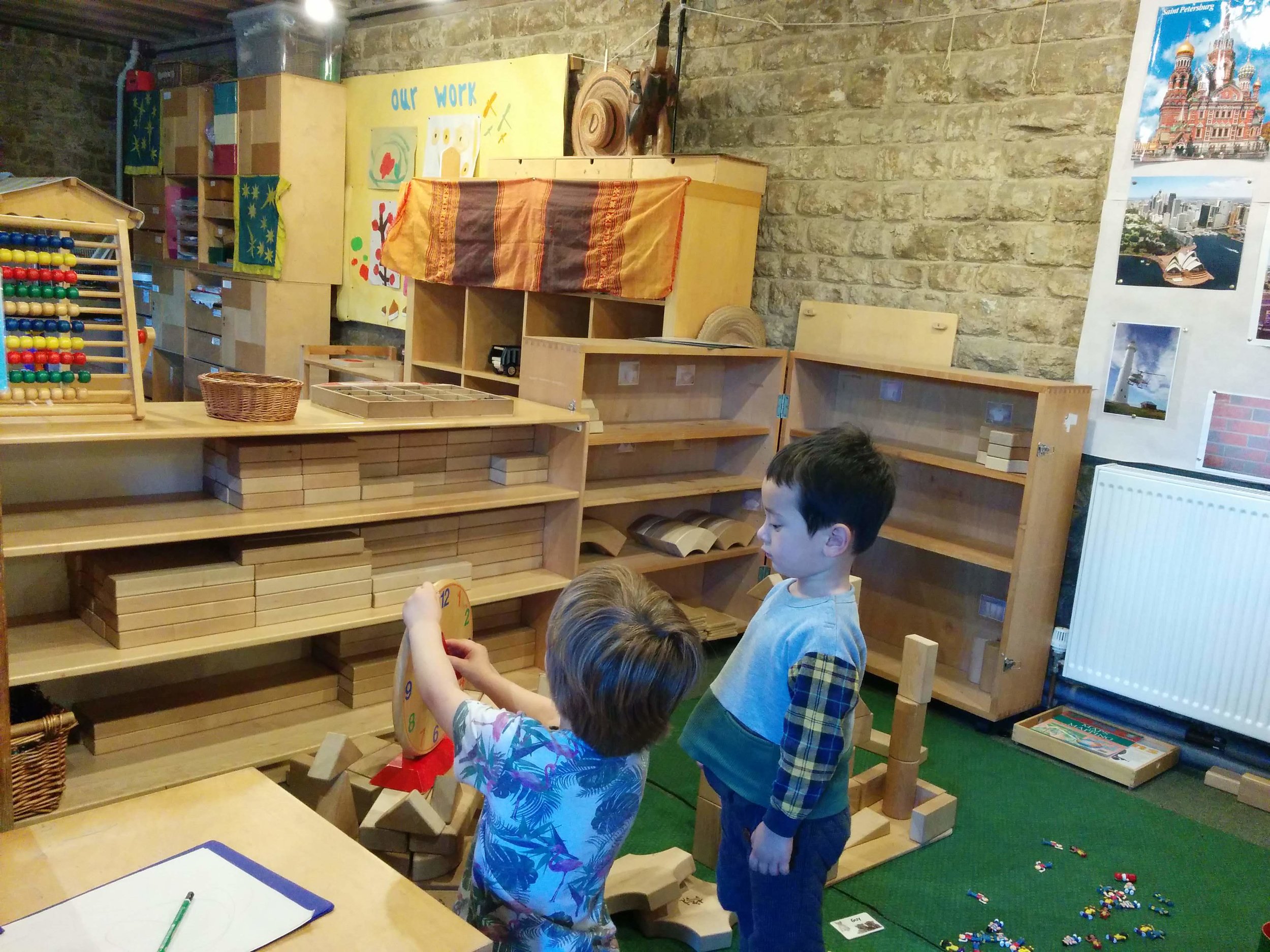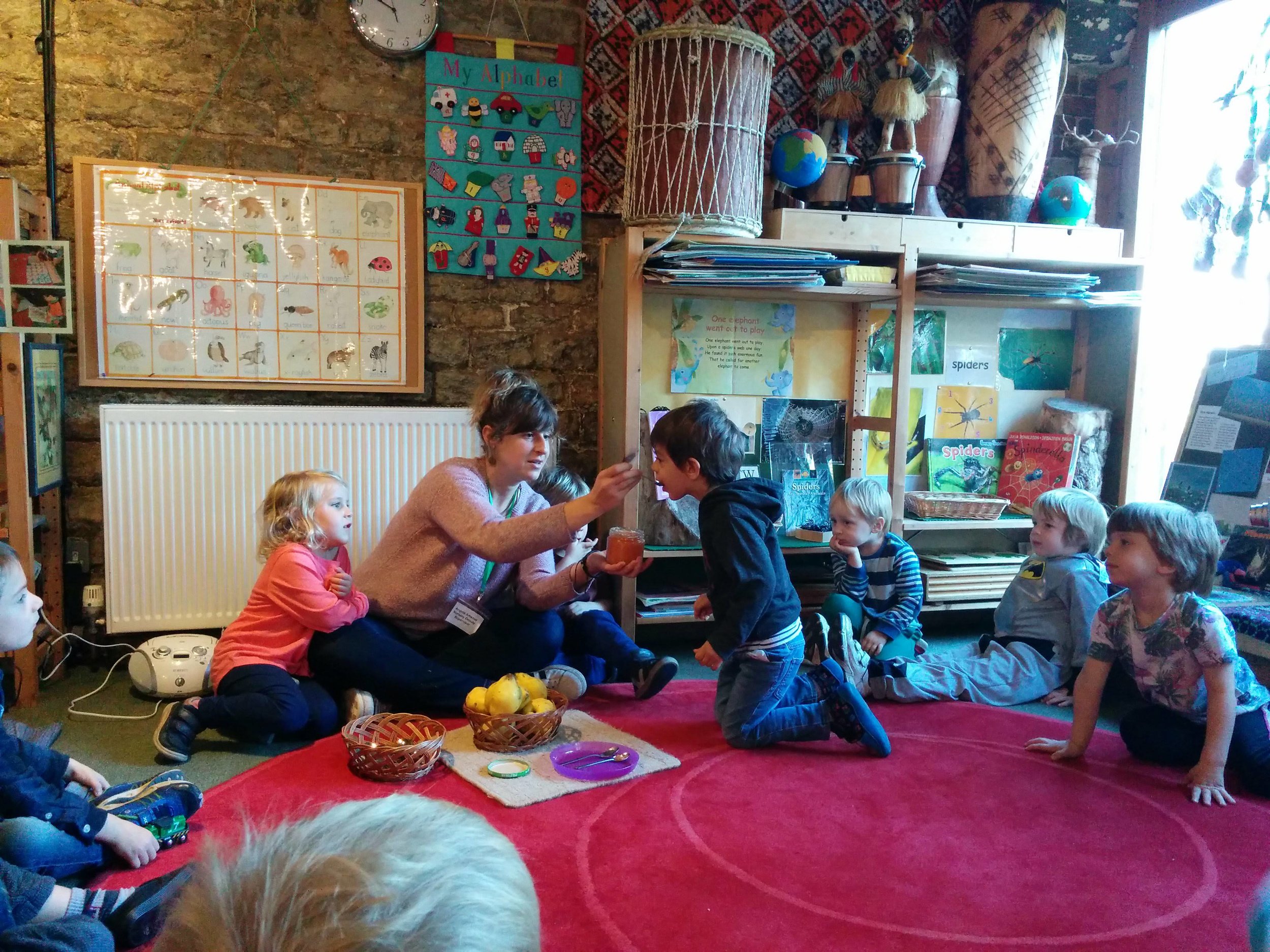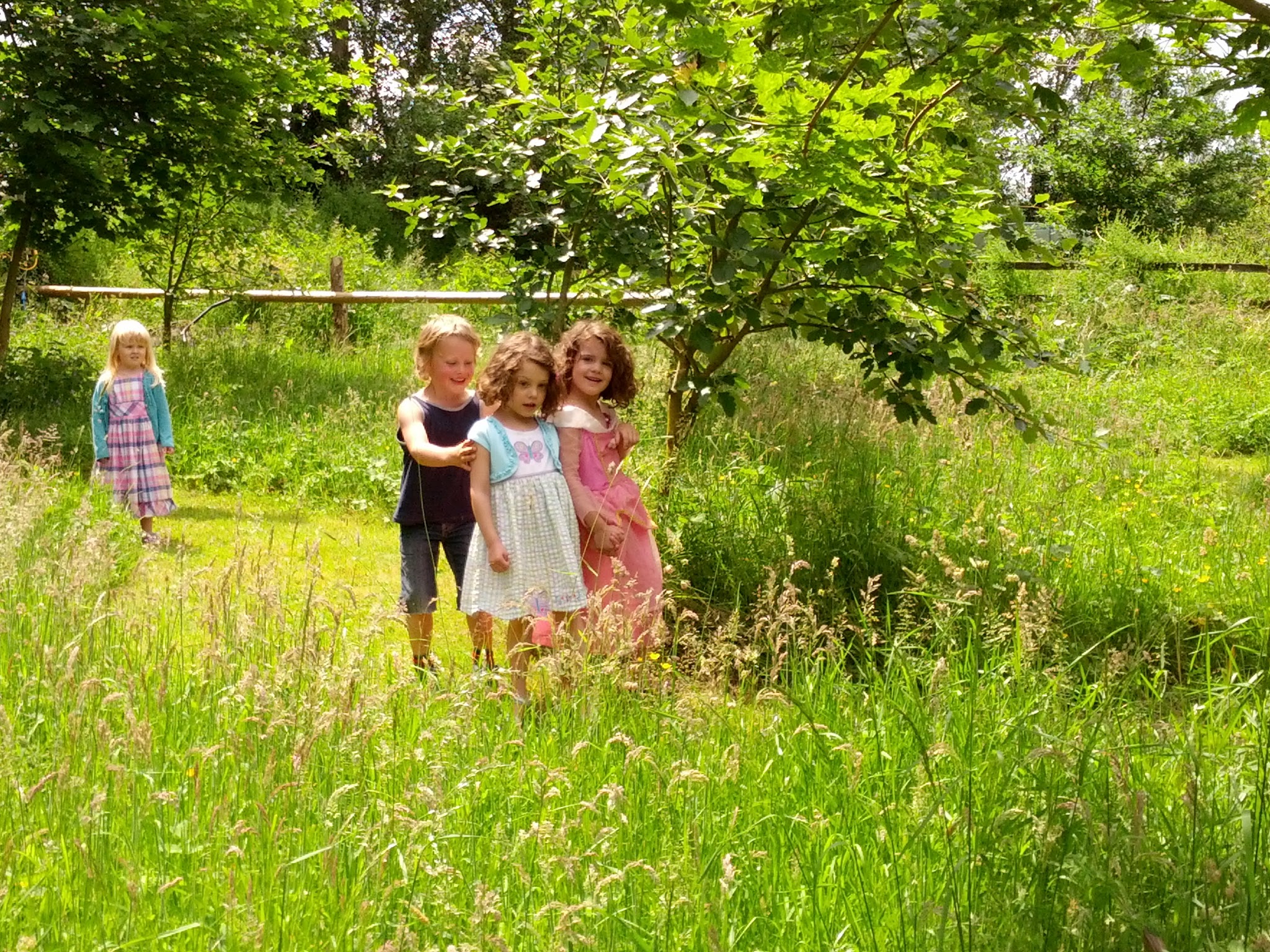“Forest Farm Montessori Nursery was established in January 2000. We also have the added option of After School Club & Create Holiday Club. Forest Farm is exceptional and is set in acres of beautiful countryside. Every child is unique and this must be nurtured and enhanced. This is a place where each child is valued and where their self esteem can grow. The opportunities for the children are unparalleled in Oxfordshire. It is the only OMS setting that also has Primary and Senior School Montessori classes. ”
Forest Farm Nursery, Primary & Senior School
“In the Nursery, children make good, and often outstanding, progress towards the early learning goals, particularly in their personal, social and emotional development and in their knowledge and understanding of the world. Excellent guidance from the staff, combined with a very inviting learning environment, helps them to become confident and competent self-learners.”
“OMS is a Forest School Centre / We know how important it is for children’s overall well being to spend time in the natural world.
”
There are acres of space for children to play
“The Nursery, Primary & Senior school children spend a minimum of 20% of their time outside. We believe this is crucial to children’s well-being.”
The Nursery adventure playground
Nursery children have access to playgrounds near our woods
Children may attend aged 2 to 5/6 years in the Nursery.
And if parents wish, they can continue on to the Primary School (5/6 years to 11 years) and even take GCSE’s with us at senior age 11 to 16. Forest Farm is an Examinations Centre for public examinations.
Montessori in 5 minutes! We teach using a method developed by Dr. Maria Montessori. Montessori was a pioneer of interest-led education and an early authority on children's development. There is an interesting and brief introduction to the philosophy HERE ...
Essentials .
Aim:
Every child deserves the best possible start in life to fulfil their potential. A secure and safe environment both indoors and outdoors and professional experienced practitioners play a key role in supporting and extending a child’s development and learning.
Class size: The Nursery accommodates up to 20 children during a session. We choose to take a very small number of children aged 2 years.
Dr Maria Montessori. Her pioneering work remains relevant and influential today
Teachers
The staff team is well established. We work to staff to pupil ratios of 1 teacher to 8 children aged 3 and above and 1 teacher to 4 children under 3. Each teacher has a group of key children to care for, observe their developmental progress and keep in touch with parents and carers. Our staff are a well qualified combination of Montessori and Early Years trained practitioners with a wealth of knowledge and experience. Our staff are extremely dedicated and caring. They continually observe children’s emotional well-being, social and learning developmental stages and adapt and prepare the environment to meet children’s continually changing needs. Our teachers are there to act as observers and facilitators, to guide the children, follow their interests and respond to their developing curiosity and needs. The teachers carefully plan each day to create an exciting programme of activities.
What makes the environment special?
The children's classroom is a beautiful space converted from old farm buildings. It has an abundance of resources that are mainly made of natural materials, such as wood. Montessori learning materials are designed so that each one has a varied and progressive teaching and learning objective; in other words they are didactic. The children make choices of how they spend their time. We have 6 areas of learning in the Montessori classroom. Each of the Montessori areas of learning work alongside the Early Years Foundation Stage areas of learning. The prime areas are important because they lay the foundations for children's success in all other areas of learning and of life: Personal, Social and Emotional Development, Physical Development., Communication, Language and Literacy, Mathematical, Expressive Arts and Design and Knowledge and Understanding. We use a combination of Montessori materials, other materials and teaching to meet all areas of children’s development.
Communication and Language Development and Literacy:
A solid foundation in Communication & Language development in the early years, before a child enters school, promotes success in reading and writing in the future.
Young children who have rich language and literacy experiences are more likely to be successful in learning to read independently.
In our nurseries we support the children’s development in these areas with a varied curriculum and rich language environment with opportunities to interact with others and to use a wide variety of resources for expressing their understanding. Daily activities like talking, singing, reading, storytelling, drawing and mark-making/writing are available for each child in our prepared environments, both inside and outside.
Children’s group times are in small, age appropriate circle times.
Older children participate in more focused group activities based on phonics, rhyming and word building. Alongside this there are individual lessons where children use the Montessori Language materials to learn to word build, spell and read.
We use Read Write Inc, when teaching Phonics (the system used in our Primary Classess). The children’s skills in these areas are monitored through daily observations and WellComm Assessments - where their communication and understanding are observed, recorded and assessed on a regular basis.
Physical Development includes many activities to promote development of large and fine motor skills. There are many interesting activities which require a fine pinser grip to develop and strengthen muscle and concentration for writing and precision activities at a later stage. Activities in the classroom and outdoors provide opportunities for promoting development of larger motor skills, walking, balancing, pushing, cycling, climbing, moving to music, all these developing skill, precision and spatial awareness.
Personal, Social and Emotional Development with emphasis on sharing, being kind and respectful, self care and care of their environment. There are many activities in the classroom to aid children to care for themselves and their environment. Children are encouraged to put on and take off outdoor clothing and to do as much for themselves as possible to promote their independence. Teachers are there as role models to promote, care, kindness and sharing in the form of speaking respectfully and carrying out the day with the understanding that they are the childrens’ role model.
Mathematical Development activities are very varied and include; numerical, counting and number recognition, matching one on one correspondance and number organisation, measures, patterns, shape and order and promote spatial awareness. Frequent daily opportunities are there to enable children to develop a deep solid understanding of numbers up to 10 and the relationships between them.
Expressive Arts and Design, includes music, singing, dancing and art and crafts, using a large variety of media and materials, music and movement and role play. These activities all play a part in promoting expression and appreciation of what they see, feel, hear and respond to.
Understanding the World exposes children to the many wonderful things around them, such as plants, animals and insects, the weather and seasons and the effects on the environment, celebrations and festivals, their own community and other cultures and how things work. Outings and visitors, such as important people of society and people who provide a service all make their world interesting and promote curiosity, inquisitiveness and a deeper understanding about their world.
Monitoring and Assessment: We use a systematic and routine approach to record children’s progress approved by the Local Authority. We plan and provide experience appropriate to each child’s stage of development as they progress towards the Early Learning Goals continuing to practice, refine and build on their previous development and learning.
Special educational needs and disabilities.
At Forest Farm we strive to ensure that all our children feel happy and safe. Everyone is valued, respected as an individual and encouraged to persevere, striving to achieve their full potential. All children receive an education that allows equality of opportunity and fosters a love of learning. We focus on removing any barriers which impede learning.
Children at Forest Farm are actively encouraged to take responsibility for their own learning and ensure that they effectively use all resources and support available to them, to aid success. Children are also encouraged to contribute their views and make informed decisions about their education.
Parents have a critical role to play in their child's education. The school will work actively in partnership with parents to provide appropriate strategies to meet the student’s educational needs and encourage parents to play an active role in the student’s education.
Linguistic diversity is valued and opportunities provided for children to develop and use their own language in their play and learning. Opportunities are provided for children to develop English in a meaningful context. For children who attend our nurseries where English is not their first language we pay special attention to supporting inclusivity and aid any language barriers as set out in our English as an additional language (EAL) policy
Outside
Children have access to their own private garden, the sports barn for play in all weather, the coppice wood (our 2000 tree natural arena for play and nature study) and an adventure playground. We believe Forest Farm is a unique 10 acre opportunity dedicated to young people.
Outdoor Learning
At Forest Farm we aim to spend at least 20% of the week learning outside. We believe the natural environment promotes good physical and mental health, emotional well being and a sense of peace. We have varied spaces, such as fruit growing areas, a greenhouse for planting, outdoor classroom areas with external tables and chairs, an adventure playground, the coppice wood and large open spaces too with willow domes as shade. There are footpaths around the school into the woods and open farmland.
We have integrated outside learning into part of the curriculum. In the Primary classes we have set up Forest Schools on a weekly basis, where the children ‘go out’ and explore. They learn and observe nature and the seasons, care for the environment, learn about the importance of looking after our flora and fauna and learn survival techniques.
There is no limit to the experiences and curiosities that outdoor environments and activities can arouse. Participants frequently discover potential, abilities and interests that surprise themselves and others. Safety codes provide clear boundaries and learning goals give clear direction, but Outdoor Learning draws in energy and inspiration from all around. 'Broadening horizons' is a common outcome.
Outdoor Learning is real learning-" Source: DfES & QCA, The National Curriculum, 'Aims for the School Curriculum' 1999.
‘Not only does Outdoor Learning happen in the natural environments where participants can see, hear, touch and smell the real thing, it also happens in an arena where actions have real results and consequences. Outdoor Learning can help to bring many school subjects alive while also providing experiential opportunities for fulfilling the National Curriculum aim "to enable pupils to respond positively to opportunities, challenges and responsibilities, to manage risk and to cope with change and adversity.'‘’
Admission policy: All children from 2-5/6 years are welcome as part of the school’s anti-discrimination policy. Children can be admitted from their 2nd birthday. We do have a limited number of 2 year olds due to a mixed age group. Children from around the age of 4 will move into our reception class when they are ready to.
Booking a place: Ideally you should apply at least three terms in advance, especially if you wish to have a full choice over which days your child attends.
The performance space - one of our communal areas where Nursery, Primary and Seniors come together for special occasions
We offer flexible solutions for families and their children. When you combine term time places with holiday club options, we offer discounts that offer good value and represent a really unique day care alternative…
Early Bird Sessions 8am to 8.30am-limited spaces only - at additional charge
Term Time Montessori School Day 8.30am to 3pm
Term Time Create After School Club 3pm to 5.30pm (only at Forest Farm)
Create Holiday Club Sessions 8.30am to 4.30pm - out of term time
The school closes for 3 weeks over the Christmas period and 2 preparation days either end of the summer holidays.
It is possible to combine the above to create a unique Day Care / All Year place.
The teachers we employ have knowledge, skills and a natural affinity with children
Snow scene at Forest Farm
“In a perfect world, there would be an abundance of intelligent, well-balanced, devoted individuals willing to attend lavishly and patiently to the demands of strangers’ children — enough so that every family who wanted could have their own full-time loving surrogate. These dream workers would remain with the same family year after year, meshing perfectly with child, parents, and surroundings.”
“We cannot promise Meryl’s ideal, but it is a guiding aim. Our staff teams offer real emotional and educative care and they remain in place for long periods of time. We offer quite a few attendance options. Our range of options does give the children a really varied experience, especially for those families who need virtually year round care and education for their children. The combination of Montessori Nursery, Early Bird Sessions, After School Sessions and Create Holiday Club Activities involve children in a wide and vibrant community of children, teachers and facilities. ”
Next Steps: Discover a Montessori Primary Education
We take a child by child approach to this transition process. The decision is taken with input from the child, teachers and of course, parents.
Primary aged children bike riding during sports day
Forest Farm Primary School
There are 3 classes in our primary school. There are two age groups in each class. This means that because of different ages and abilities, children can feel at ease working with children of similar ability, in different subjects, regardless of age. This has the added advantage of working with both older children as their role model (younger children learn so much from this) and younger children to feel responsible for, help and support a younger child, and at the same time reinforce their own learning. This promotes a non-competitive approach and children are in charge of their own leaning and feel at ease without judgement.
The aim of our Primary School is to expose children to the wonderful, exciting world of learning and being part of a community, where children are given the space and time to develop in a non-pressured environment. Every child is unique and needs nurturing and guiding through their learning experience with care and respect. This means that teaching needs to be differentiated to capture every style and ability of our learners.
Aspects of the curriculum are delivered through cross-curricular project work. This allows the children to really immerse themselves in the learning experience. Topic ideas come from the children and reflect their interests, which acts as a starting point for planning. The project work provides creative and meaningful cross-curricular links to geography, history, culture and the arts, it also can link to maths, language and literacy and science, which are taught as stand alone subjects. These are taught either as a whole class, in small groups or individually, depending on the needs of the child.
Learning is as hands on as possible and children take on ownership of their classrooms and know where everything they need is to be found.
Booking a place: It is best to give us as much notice as possible. Depending on the term, spaces are limited. Try and let us know your requirements at least two-three terms in advance.
Sports happens outside as weather allows and when it rains, it takes place in the sports barn
